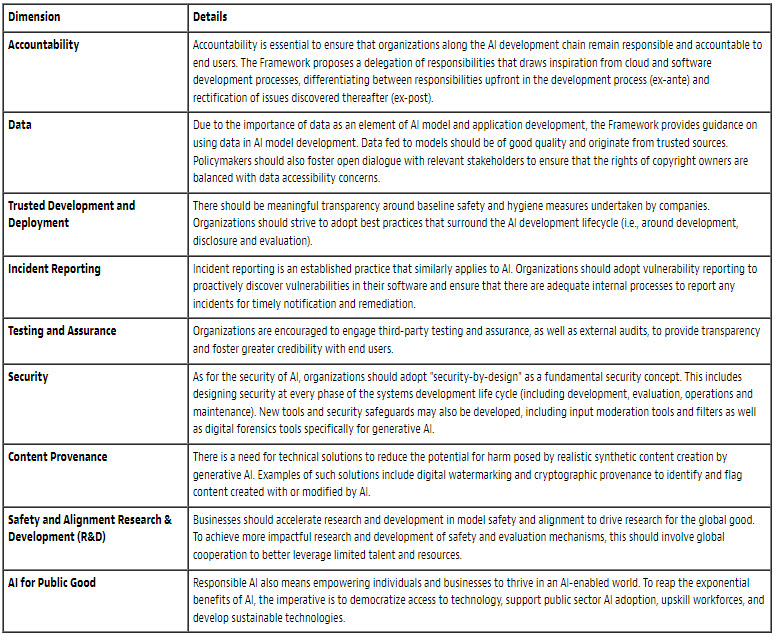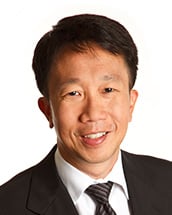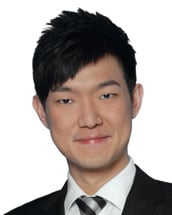In brief
Following the publication of the proposed Framework in January 2024 (which you can refer to our earlier client alert here for more details) and the feedback received from various stakeholders, the finalized Model AI Governance Framework for Generative AI (“Framework“) was released on 30 May 2024 by the Infocommunications Media Development Authority (IMDA) and AI Verify Foundation.
The Framework expands upon the Model AI Governance Framework last updated in 2020.
In more detail
The Framework serves as baseline guidance for key stakeholders, such as policymakers, industry, researchers, and the general public, to adopt best practices in relation to pertinent issues posed by generative AI.
The Framework draws from insights and conversations with key jurisdictions, international organizations, research institutions and leading AI companies. It proposes nine dimensions to be looked at as a whole to foster a trusted AI ecosystem, which we explain in further detail below.

Key takeaways
- The Framework, through its nine dimensions, highlights relevant pressing and growing concerns related to AI governance, and aims to set out a recommended approach to balance such concerns with innovation through generative AI.
- In order to foster a trusted ecosystem to safely harness the use of generative AI, it is essential for all stakeholders to utilize the Framework as a reference point and adopt best practices contained therein.
* * * * *
If you wish to speak with us on any of the dimensions or issues raised above, please reach out to us.
Relevant links:
Model AI Governance Framework for Generative AI issued by AI Verify Foundation and Infocomm Media Development Authority on 30 May 2024.
* * * * *

© 2024 Baker & McKenzie.Wong & Leow. All rights reserved. Baker & McKenzie.Wong & Leow is incorporated with limited liability and is a member firm of Baker & McKenzie International, a global law firm with member law firms around the world. In accordance with the common terminology used in professional service organizations, reference to a “principal” means a person who is a partner, or equivalent, in such a law firm. Similarly, reference to an “office” means an office of any such law firm. This may qualify as “Attorney Advertising” requiring notice in some jurisdictions. Prior results do not guarantee a similar outcome.






